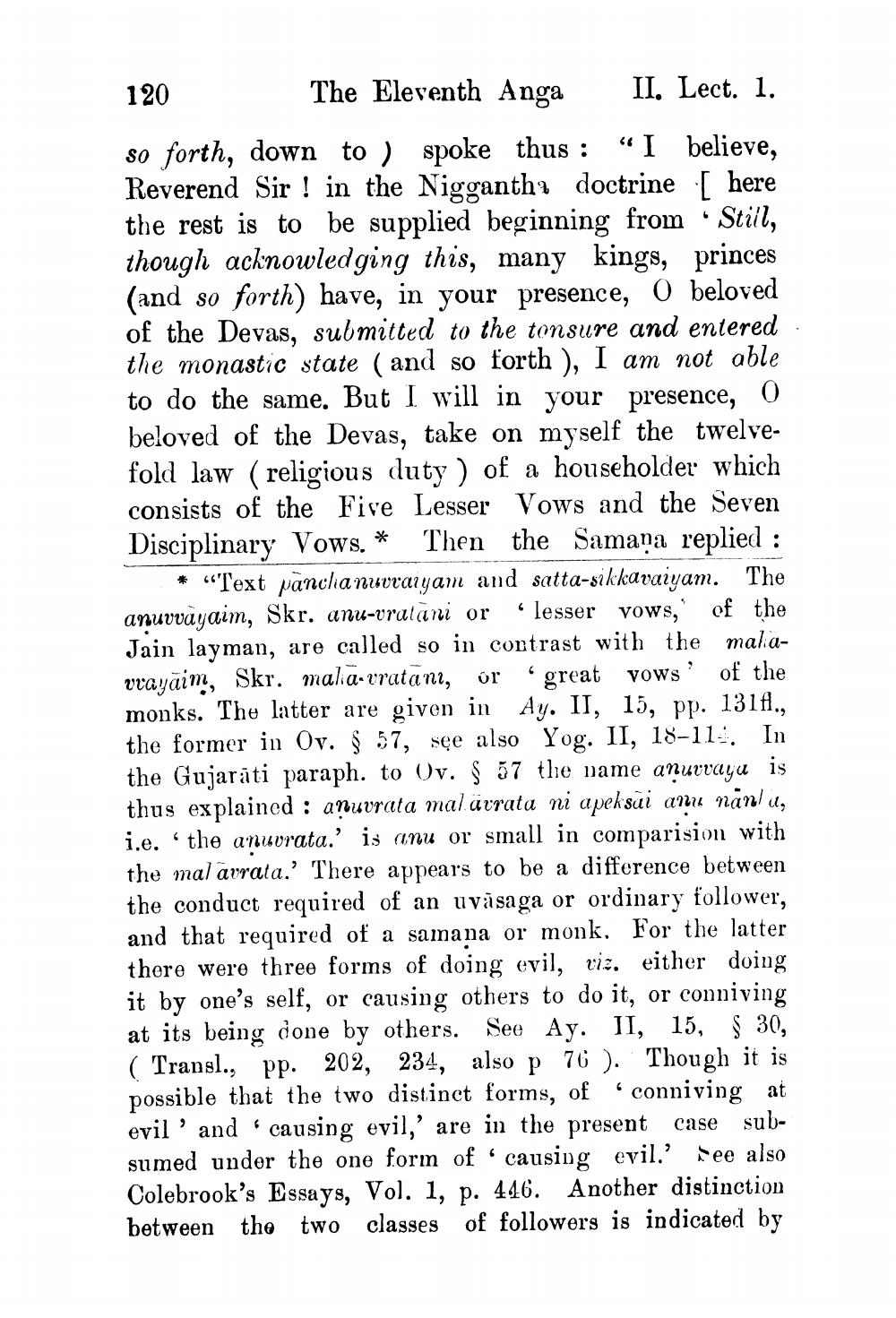________________
120
The Eleventh Anga II. Lect. 1. so forth, down to ) spoke thus : “I believe, Reverend Sir ! in the Nigganthu doctrine [ here the rest is to be supplied beginning from Stiil, though acknowledging this, many kings, princes (and so forth) have, in your presence, O beloved of the Devas, submitted to the tonsure and entered the monastic state (and so forth ), I am not able to do the same. But I will in your presence, () beloved of the Devas, take on myself the twelvefold law ( religious duty ) of a householder which consists of the Five Lesser Vows and the Seven Disciplinary Vows. * Then the Samana replied :
* "Text panchanuvvaiyam and satta-sikkavaiyam. The anuvvayaim, Skr. anu-vratani or lesser vows,' of the Jain layman, are called so in contrast with the malavrayāim, Skr. mala-vratani, or great vows' of the monks. The latter are given in Ay. II, 15, pp. 1311., the former in Ov. § 57, see also Yog. II, 18-114. In the Gujarāti paraph. to (v. § 57 the name anuvvalja is thus explained : anuvrata malavrata ni apeksai aru nantu, i.e. 'the anuvrata.' is anu or small in comparision with the mal avrata.' There appears to be a difference between the conduct required of an uvāsaga or ordinary follower, and that required of a samana or monk. For the latter there were three forms of doing evil, viz. either doing it by one's self, or causing others to do it, or conniving at its being done by others. See Ay. II, 15, § 30, ( Transl., pp. 202, 234, also p 76 ). Though it is possible that the two distinct forms, of 'conniving at evil’ and causing evil,' are in the present case subsumed under the one form of 'causing evil.' See also Colebrook's Essays, Vol. 1, p. 446. Another distinction between the two classes of followers is indicated by




